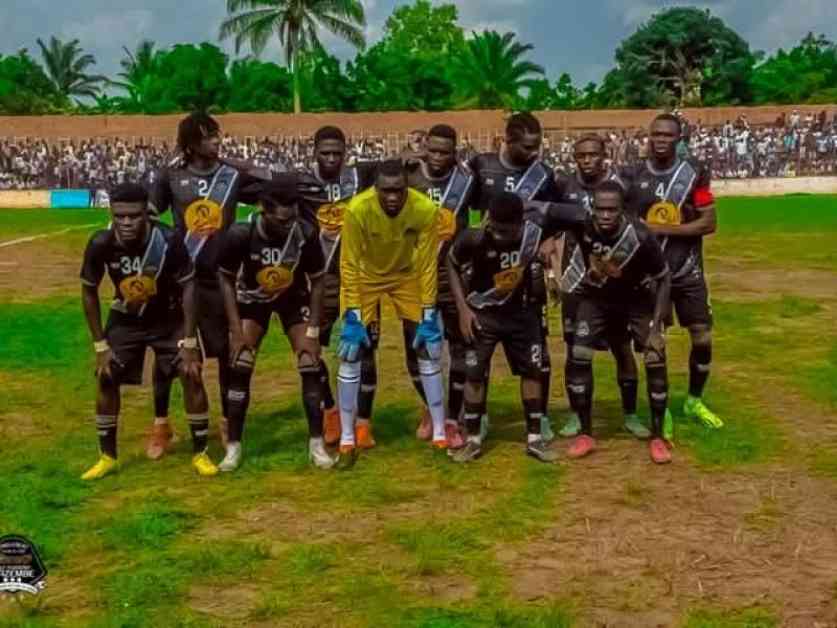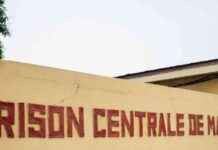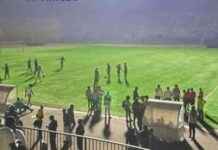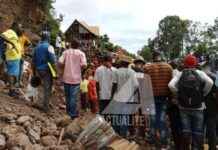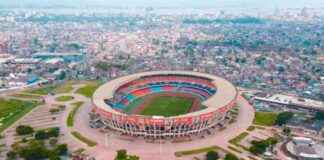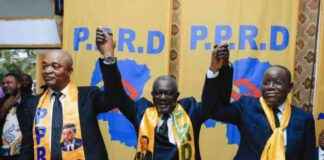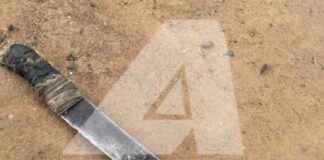In a recent meeting held on Thursday, February 6th in Kinshasa, TP Mazembe participated in discussions regarding the challenges of organizing the return phase of the Ligue 1 championship in the Eastern region. The meeting, attended by the normalization committee of the Congolese Football Association (FECOFA), the National Football League (LINAFOOT), and various clubs, focused on addressing the security situation in the East of the country and the limited time available to complete the sports season.
Following the meeting, a representative from the Noir et Blanc club in Lubumbashi expressed skepticism about the feasibility of resuming the national championship. Considering the current circumstances, he stated, “It is not possible to organize this return phase of the national championship, Ligue 1. However, we stand in solidarity with our friends in Goma and Bukavu who are unable to travel.” The precarious security situation in the East of the DRC has posed significant challenges for the teams in that region, particularly in terms of safety and logistics.
In light of these concerns, the normalization committee, LINAFOOT, and the clubs have been exploring alternative solutions to ensure the continuity of the disrupted Ligue 1 national championship. One proposed option is to relocate matches involving teams from the East to safer venues that can provide guaranteed security conditions. Nevertheless, teams from Goma and Bukavu are facing obstacles in terms of traveling and are at risk due to ongoing conflicts in the area.
Exploring Alternative Solutions for the Ligue 1 Championship
The situation in the East of the DRC underscores the critical importance of peace and security in fostering the development of sports and society as a whole. The challenges faced by clubs in Goma and Bukavu highlight the need for innovative approaches to ensure the safety and well-being of athletes while maintaining the integrity of the competition. While the prospect of relocating matches to more secure locations offers a temporary fix, it also raises questions about the long-term sustainability of such arrangements. Finding a balance between security concerns and the practicalities of organizing sporting events in volatile regions remains a complex and ongoing challenge for all stakeholders involved.
Expert Insights on the Impact of Security Challenges on Sports
In light of the current circumstances, experts emphasize the need for a comprehensive approach that addresses not only the immediate security concerns but also the underlying issues that contribute to instability in the region. By prioritizing the safety and well-being of athletes, officials, and fans, sports organizations can play a vital role in promoting peace and social cohesion in conflict-affected areas. The resilience and determination of the clubs in the face of adversity serve as a testament to the power of sports to unite communities and inspire positive change.
In conclusion, the challenges of organizing the Ligue 1 phase return in the Eastern region highlight the complex interplay between sports, security, and social development. As stakeholders continue to navigate these difficult circumstances, the spirit of solidarity and resilience displayed by clubs like TP Mazembe underscores the enduring power of sports to transcend barriers and bring people together in pursuit of a common goal. The path ahead may be uncertain, but with unwavering determination and a commitment to peace, the spirit of sportsmanship will prevail in overcoming the obstacles that lie ahead.
